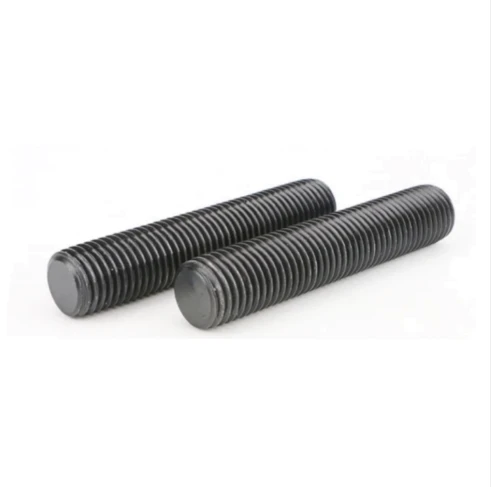Selecting the Right Trailer Hitch Bolts for Your Towing Needs
Nov . 04, 2024 10:59 Back to list
Selecting the Right Trailer Hitch Bolts for Your Towing Needs
Understanding Trailer Hitch Bolts A Guide to Buying the Right Ones
When it comes to towing, having the right equipment is crucial. One of the essential components of any towing setup is the trailer hitch assembly, and at the heart of this assembly are trailer hitch bolts. These bolts are responsible for securing the hitch to your vehicle, and selecting the right bolts is vital for both the safety and effectiveness of your towing experience. In this article, we will explore the different types of trailer hitch bolts, their importance, and key factors to consider when buying them.
What Are Trailer Hitch Bolts?
Trailer hitch bolts are heavy-duty fasteners designed to attach the trailer hitch to a vehicle. They come in various sizes and grades, ensuring that they can withstand the rigors of towing heavy loads. Typically made from high-strength steel, these bolts are designed to resist shear and tensile forces, which are crucial for maintaining stability during travel.
Types of Trailer Hitch Bolts
1. Standard Bolts These are the most common type of hitch bolts used in various towing applications. They typically feature a hexagonal head and are available in different lengths and diameters.
2. Locking Bolts For additional security, some users opt for locking bolts. These bolts are designed to prevent unauthorized removal of the hitch. They come with a special key or mechanism to secure the bolt in place.
3. Shoulder Bolts These bolts have a shoulder that provides a larger bearing surface, which helps distribute the load more evenly. This type is beneficial for applications where increased strength is needed.
4. Heavy-Duty Bolts As the name suggests, these bolts are designed for extreme towing capacities. They often feature higher grade ratings and are ideal for heavy trailers.
Why Choosing the Right Bolts Matters
buy trailer hitch bolts

When it comes to towing, safety should always be a priority. Using the wrong type of bolt or an inadequate strength rating can lead to catastrophic failures. The hitch could detach from the vehicle, leading to accidents that could endanger you and others on the road. Additionally, the longevity of your hitch and trailer setup can be impacted by using subpar bolts. Therefore, it is crucial to understand your towing needs and select bolts that match those requirements.
Key Factors to Consider When Buying Trailer Hitch Bolts
1. Load Capacity Always refer to the load capacity of your trailer hitch and ensure that the bolts you choose can handle more than the maximum load. This is essential for safe towing.
2. Size and Threading Bolts come in various sizes and threading options. Make sure to measure the existing hitch setup or refer to the manufacturer's specifications to choose the correct size.
3. Material Opt for bolts made of high-strength steel or other durable materials. Coated or galvanized bolts can offer additional corrosion resistance, prolonging their lifespan.
4. Grade Ratings Trailer hitch bolts are rated for strength and durability. Common grades include Grade 5, Grade 8, and even specialty grades for heavy-duty applications. Choose a grade that corresponds with your towing requirements.
5. Ease of Installation Look for bolts that are easy to install and remove. Some may come with specialized tools for easy adjustment and maintenance.
Conclusion
Investing in quality trailer hitch bolts is a critical step in ensuring a safe and efficient towing experience. As you consider your options, take the time to evaluate your specific needs based on load capacity, size, material, and strength ratings. Whether you are an occasional user or a frequent tower, having the right bolts can make all the difference in your towing adventures. Always prioritize safety and make informed choices when it comes to buying trailer hitch bolts. They are small components, but their importance in the towing equation cannot be overstated.
Latest news
-
High-Quality Panel Stud Bolt Reliable Panel Stud Bolt Factory & Suppliers
NewsJul.08,2025
-
High-Precision Fine Thread Locknuts Manufacturer & Supplier Custom Solutions
NewsJul.08,2025
-
PH Imperial Stud Bolt – High Strength Fasteners from Leading Supplier & Factory
NewsJul.07,2025
-
High-Quality Allen Wrench Bolts Leading Factory, Company & Suppliers
NewsJul.07,2025
-
Wholesale Ball Stud Bolt - High Quality Supplier & Factory Price Reliable Wholesale Ball Stud Bolt Company
NewsJul.06,2025
-
High-Strength Alloy Bolts Manufacturer & Supplier Quality Alloy Fasteners Factory
NewsJul.06,2025
